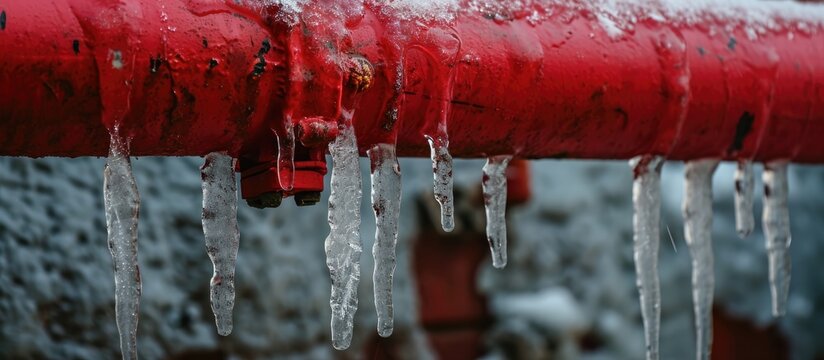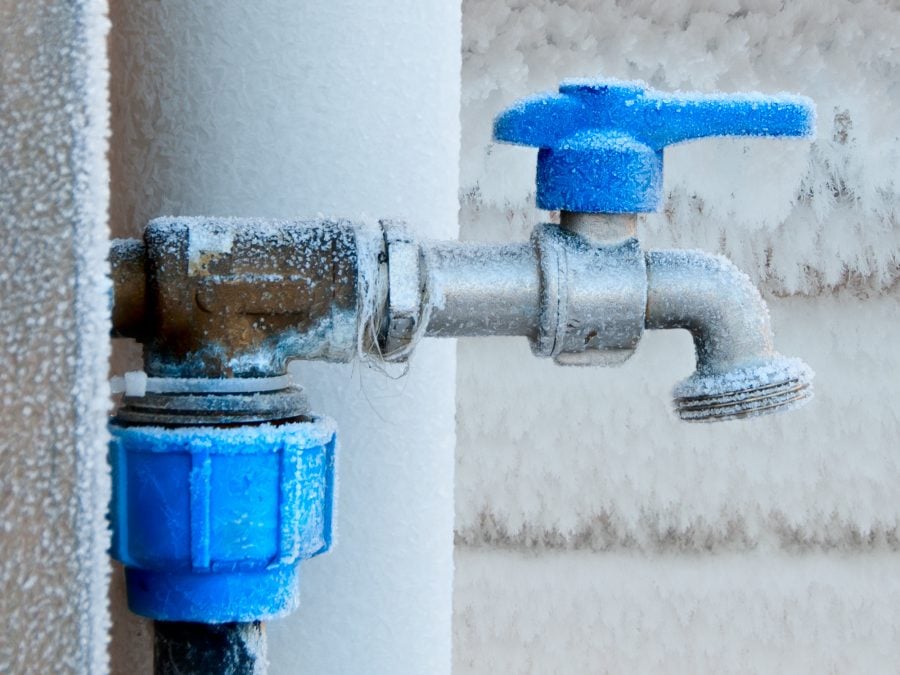How to Protect Pipes from Freezing Issues: Essential Tips
How to Protect Pipes from Freezing Issues: Essential Tips
Blog Article
In this article in the next paragraphs you'll find a lot of sensible resources involving Preventing and dealing with frozen pipes.

Cold weather can ruin your plumbing, particularly by freezing pipelines. Here's exactly how to stop it from taking place and what to do if it does.
Introduction
As temperature levels decrease, the threat of icy pipelines boosts, possibly causing costly repair work and water damage. Comprehending how to avoid icy pipes is essential for property owners in chilly environments.
Recognizing Frozen Pipelines
What creates pipelines to freeze?
Pipelines ice up when subjected to temperatures below 32 ° F (0 ° C) for extended durations. As water inside the pipelines ices up, it broadens, taxing the pipeline wall surfaces and possibly triggering them to rupture.
Dangers and damages
Frozen pipelines can lead to water supply disruptions, building damages, and pricey repair work. Ruptured pipelines can flooding homes and cause comprehensive structural damage.
Indicators of Frozen Water Lines
Identifying frozen pipes early can avoid them from rupturing.
Exactly how to recognize icy pipelines
Try to find lowered water circulation from faucets, unusual smells or sounds from pipes, and noticeable frost on subjected pipelines.
Prevention Tips
Protecting vulnerable pipelines
Cover pipelines in insulation sleeves or make use of warm tape to secure them from freezing temperature levels. Concentrate on pipelines in unheated or outside locations of the home.
Home heating methods
Keep indoor areas properly heated up, especially locations with pipes. Open closet doors to enable warm air to circulate around pipelines under sinks.
Protecting Outside Pipes
Yard tubes and exterior faucets
Separate and drain pipes yard tubes prior to wintertime. Install frost-proof faucets or cover outside faucets with protected caps.
What to Do If Your Pipelines Freeze
Immediate actions to take
If you think icy pipelines, maintain faucets open up to alleviate stress as the ice thaws. Utilize a hairdryer or towels taken in hot water to thaw pipelines gradually.
Long-Term Solutions
Structural changes
Consider rerouting pipes away from exterior wall surfaces or unheated areas. Add additional insulation to attics, basements, and crawl spaces.
Updating insulation
Invest in high-quality insulation for pipelines, attics, and wall surfaces. Correct insulation aids keep regular temperatures and decreases the risk of frozen pipelines.
Conclusion
Avoiding frozen pipelines needs proactive steps and quick feedbacks. By understanding the causes, indications, and safety nets, house owners can safeguard their pipes during winter.
Helpful Tips to Prevent Frozen Pipes this Winter
UNDERSTANDING THE BASICS: WHY PIPES FREEZE AND WHY IT’S A PROBLEM
Water freezing inside pipes is common during the winter months, but understanding why pipes freeze, and the potential problems it can cause is crucial in preventing such incidents. This section will delve into the basics of why pipes freeze and the associated problems that may arise.
THE SCIENCE BEHIND FROZEN PIPES
When water reaches freezing temperatures, it undergoes a physical transformation and solidifies into ice. This expansion of water as it freezes is the primary reason pipes can burst. As the water inside the pipe freezes, it expands, creating immense pressure on the walls. If the pressure becomes too great, the pipe can crack or rupture, leading to leaks and water damage.
FACTORS THAT CONTRIBUTE TO PIPE FREEZING
Low Temperatures: Extremely cold weather, especially below freezing, increases the risk of pipes freezing. Uninsulated or Poorly Insulated Pipes: Pipes located in unheated areas, such as basements, crawl spaces, or attics, are more prone to freezing. Insufficient insulation or lack of insulation altogether exacerbates the problem. Exterior Wall Exposure: Pipes running along exterior walls are susceptible to freezing as they encounter colder temperatures outside. Lack of Heating or Temperature Regulation: Inadequate heating or inconsistent temperature control in your home can contribute to frozen pipes. PROBLEMS CAUSED BY FROZEN PIPES
- Pipe Bursting: As mentioned earlier, the expansion of water as it freezes can cause pipes to burst, resulting in significant water damage.
- Water Damage: When pipes burst, it can lead to flooding and water damage to your property, including walls, ceilings, flooring, and personal belongings.
- Structural Damage: Prolonged exposure to water from burst pipes can compromise the structural integrity of your home, leading to costly repairs.
- Mold and Mildew Growth: Excess moisture from water damage can create a favorable environment for mold and mildew growth, posing health risks to occupants.
- Disrupted Water Supply: Frozen pipes can also result in a complete or partial loss of water supply until the issue is resolved.
WHY CERTAIN PIPES ARE MORE PRONE TO FREEZING
- Location: Pipes located in unheated or poorly insulated areas, such as basements, crawl spaces, attics, or exterior walls, are at higher risk of freezing.
- Exterior Pipes: Outdoor pipes, such as those used for irrigation or exposed plumbing, are particularly vulnerable to freezing as they are directly exposed to the elements.
- Supply Lines: Pipes that carry water from the main water supply into your home, including the main water line, are critical to protect as freezing in these lines can affect your entire plumbing system.
- Underground Pipes: Pipes buried underground, such as those connected to sprinkler systems or outdoor faucets, can be susceptible to freezing if not properly insulated.
https://busybusy.com/blog/helpful-tips-to-prevent-frozen-pipes-this-winter/

Do you like more info about How to Prevent Your Pipes From Freezing? Put a remark below. We'd be happy to know your opinion about this blog post. Hoping that you visit us again later on. Loved our entry? Please quickly share it. Help another person locate it. Thank you so much for going through it.
Book Instantly Report this page